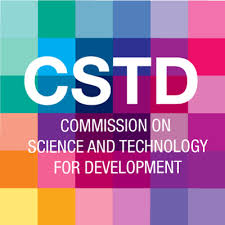Side event of the International Federation for Information Processing: Artificial intelligence, ethics, and the developing world
14 May 2019 14:00h - 15:00h
Event report
[Read more session reports and live updates from the 22nd Session of the Commission on Science and Technology for Development]
The side event, organised by the International Federation for Information Processing (IFIP), was introduced by Ms Shamika N. Sirimanne (Director, Division on Technology and Logistics and Head, CSTD Secretariat, UNCTAD) and chaired by Mr Mike Hinchey (President of the International Federation for Information Processing (IFIP); Chair of IEEE UK & Ireland; President of the Irish Computer Society). The event focused on current artificial intelligence (AI) developments, the question of ethics related to machine learning systems taking decisions, and on the potential impact of these technologies on poor countries.
Ms Chrisanthi Avgerou (Professor of Information Systems at the Department of Management, London School of Economics and Political Science) addressed the topic of AI and its impact on social-economic development. As she explained, there are huge expectations from technological innovation; nonetheless, the developmental promise of information technology (especially as an equaliser and not a means of inequality) is still to be achieved. By focusing on the potential of new waves of technology in the form of communications infrastructures (Internet, mobile networks, and satellite images), digital platforms, learning algorithms, robotics, and Internet of Things (IoT), the potential impact of rapid technological innovation can be framed within three areas.
-
The first one identifies technologies assisting humanitarian activities and tasks such as using data from mobile phones to identify communities in poor areas from satellite maps. Related risks should be pointed out with regards to possible errors such as the ones arising from missing data from poor communities, or the misinterpretation of such data.
-
The second one could be related to the implementation of information and communications technologies (ICT) innovation as a lucrative economic activity. While the benefits for wealth creation are undebatable, it should be noted that the structure of frontier technologies is extremely centralised and creates inequalities rather than distributing economic gain.
-
The third category refers to the diffusion of frontier technologies in the global economy which, on the one hand, can represent an opportunity for local innovation in different sectors, and on the other, creates significant risks of premature de-industrialisation. Therefore, in the future, the divides will increase unless efforts at the national and international level are put in place in areas of education, international regulation, and international taxation of data mining. To this extent, academic research needs to be fostered: on the ways to create local entrepreneurial capability, to develop critical judgments in educational structures, and to understand how participation in a high-tech society sustains ethical bearings.
Mr Don Gotterbarn (Researcher and Promoter of professional computing practice; Author of the Software Engineering Code of Ethics and Professional Practice) focused on question of ethics. He explained that in its peculiar evolution, computing has become something that inherently affects our lives: Today, all people are stakeholders in computing. It is therefore crucial to keep in mind the specific needs of these stakeholders in their specific environments and their specific characteristics when developing these technologies. In this context, technology and ethics are interrelated and the latter needs to be changed not because of the changes of the technology per se, but because of the new ways technology impacts our lives. Therefore, it is crucial to identify the stakeholders and their needs before developing the technology; as well as to understand the ethical, social, and technical risks before development, in order to plan and implement risk mitigation measures.
Mr David Kreps (Reader in philosophy of information systems, University of Salford, UK) presented a proposal for a research project focused on the 22nd CSTD session’s themes on robotics in poor and underdeveloped areas. The project aims for a collaboration between the CSTD and International Federation for Information Processing (IFIP).
By Stefania Grottola
Related event

22nd Session of the Commission on Science and Technology for Development
13 May 2019 16:30h - 17 May 2019 16:30h
Geneva, Switzerland
